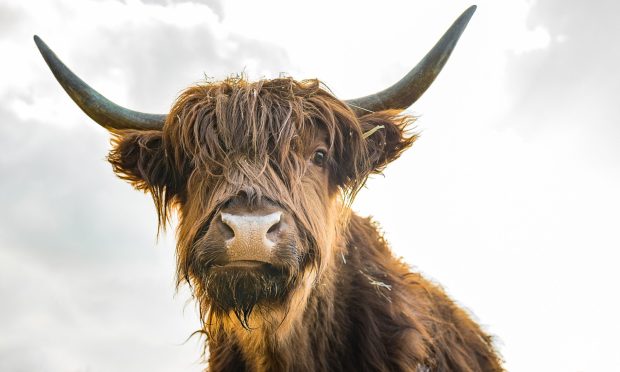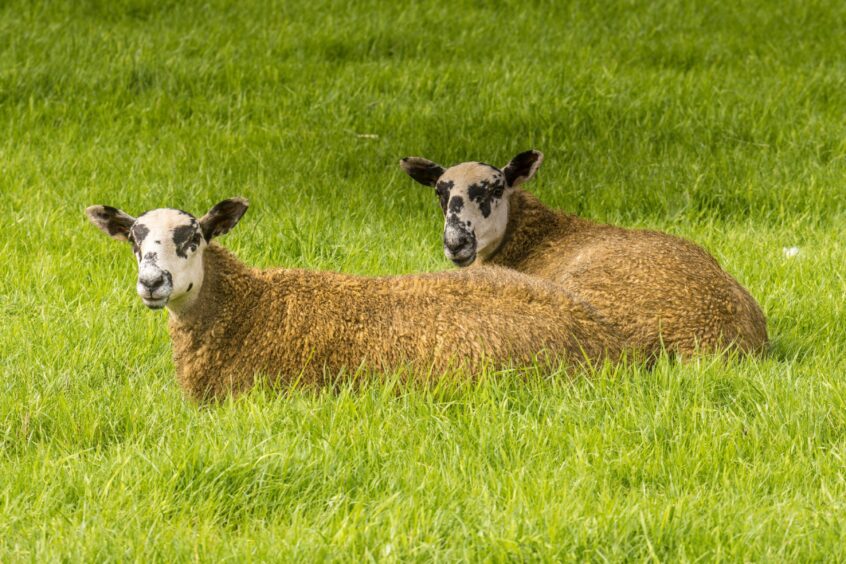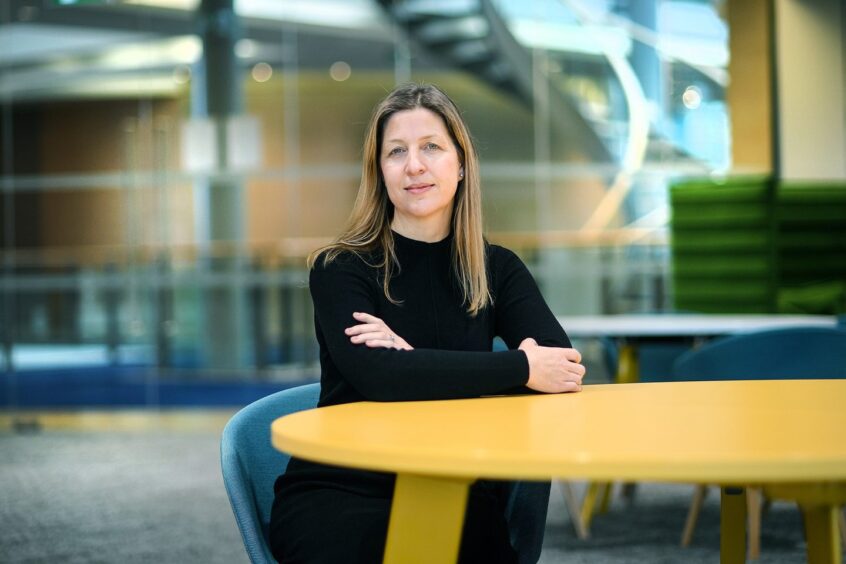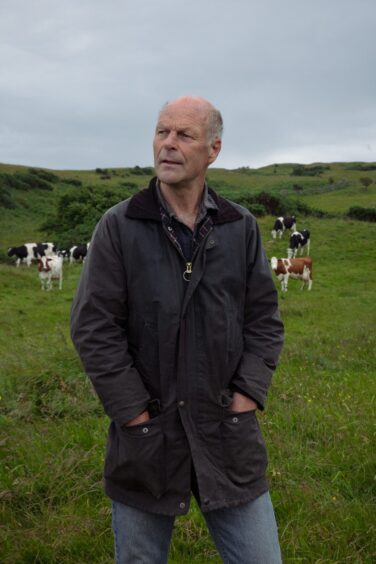Conservation group WWF Scotland is today launching a “roadmap” for funding a transition to nature friendly farming north of the border.
And it warns progress to cut agricultural emissions will stall without extra cash and “urgent” government action.
WWF wants farmers to be rewarded for growing nutritious food and restoring natural habitats.
The group’s “roadmap” is sponsored by the Royal Bank of Scotland (RBS).
Challenging times for farmers
It comes as farmers and crofters face unprecedented challenges.
Many are struggling to finance their businesses, while also having to adapt to climate change.
WWF Scotland’s new report calls for an “all-hands-on-deck” approach from both the public and private sectors.
It also says the burden to transition shouldn’t lie with farmers and crofters alone.
Current policy falls short for taking Scottish agriculture to net-zero
Increasing the uptake of nature-friendly farming measures could deliver a reduction of almost 40% of greenhouse gas emissions on 2017 levels, whilst guaranteeing the productivity of Scottish agriculture, the report says.
And it warns: “Policy measures currently proposed to reduce agricultural emissions get us less than halfway to where we need to be for Scotland to remain on track to reach net-zero by 2045.
“New and ambitious agricultural policy must, therefore, provide stability to farmers seeking to take positive steps to decarbonise, reduce dependence on external inputs, and weave nature back into their farmland.”
Assurance needed
WWF Scotland agriculture and land use policy manager Ruth Taylor said: “More sustainable farming and land management practices should be at the heart of any actions and decisions to address climate change and nature loss.
“But farmers and crofters understandably need assurance they will be fairly supported for transitioning to nature friendly practices.
“To provide this confidence, both the Scottish Government and financial institutions have a key role to play in providing adequate and sufficient finance to support the transition, and sharing risks.”
RBS Scotland board chairwoman Judith Cruickshank said: “We understand the value of the industry here in Scotland.
“That is why we have supported the development of this report.
“Royal Bank of Scotland is the biggest supporter of the sector here in Scotland and we already work with our customers in assisting them with their transition towards more regenerative operating methods.
“This includes working with brands such as Tesco and McCain to help encourage and drive such change.
Ms Cruickshank added: “Sustainability is an important consideration for the agricultural industry at all levels.
“All of our agriculture relationship managers receive training from the University of Edinburgh on the issues and opportunities it creates.
“This allows our teams to share that learning with our customers and the farming community when they decide to explore more sustainable approaches to their work.”
There has to be strong, consistent leadership, a clear pathway and a lot of support.” Dairy farmer David Findlay
Ethical farmer highlights sector’s need for public and private support
David Findlay, an “ethical” dairy farmer based in Dumfries and Galloway, said: “Farming is pretty tough right now, with some suppliers and supermarkets pushing many in the sector to their limits.
“Despite this, most farmers love what they do. But to achieve an industry-wide system change, there has to be strong, consistent leadership, a clear pathway and a lot of support from the private and public sectors.”
He added: “The farming model we have adopted shows what can be done but it didn’t come without its problems.
“One way or another, the farming sector needs to change, and we must ensure the transition is a just and fair one.”
WWF Scotland’s list of ‘actions for policymakers and government’ in 2025
- Publish a Code of Practice for Sustainable and Regenerative Agriculture that puts Scotland on the path to being a world leader in sustainable and regenerative agriculture.
- Publish an ambitious rural support plan and clearly communicate expectations to the sector.
- Give regional land use partnerships a “clear mandate and adequate support” to co-ordinate public and private investment to deliver “landscape and catchment scale collaboration”.
- Put Scottish agriculture on the path to contribute to net-zero by 2045 through targets, policies and proposals in the next climate change plan.
‘Actions’ sought in 2026
- Improve whole farm plans to include a wider range of environmental and business actions.
- Increase the budget for supporting agricultural knowledge and innovation systems to £20 million per year.
And what the conservation group would like to see happen in 2027
- Introduce new support schemes for farming and crofting, “clearly articulating their contribution to climate mitigation, nature restoration and a just transition”.
- Set out how options in new farming schemes can be “bundled, stacked or blended with private finance to lead to greater outcomes for the climate and environment”.
Holyrood launch for WWF Scotland’s new report
WWF Scotland is launching its new report in the Scottish Parliament today.
It says the aim is to mobilise public finance and finance from banks, insurers, investors and supply chain partners to “ensure farmers and crofters receive the financial support they need at each stage of their journey to more climate and nature-friendly farming”.
The report adds: “The Scottish Government currently spends £660m each year on farm support payments.
“But this system does not support the farming systems that are most valuable for emissions reduction and nature protection. This needs to change; public money should prioritise support for measures that reduce emissions and protect and restore nature.”
WWF UK already has a blueprint for financing a regenerative agricultural transition in England.
Responding to the WWF Scotland report, Rural Affairs Secretary Mairi Gougeon said: “Our Agriculture and Rural Communities Act aims to create a framework that will allow us to support farmers to farm in a sustainable and regenerative way.
“The Act will help us to deliver on key outcomes such as high quality food production; climate mitigation and adaptation; nature restoration; and wider rural development.
The minister added: “We agree with the call for improved funding for the sector.
“Instead of long-term funding certainty that was available during our EU membership, we now have an inadequate settlement within the United Kingdom, which applies a population-based formula for land-based support.
“This fails to recognise Scotland’s greater share of UK land mass and the potential of that land to contribute significantly to the UK’s climate and nature restoration targets, and to UK food security.”







Conversation